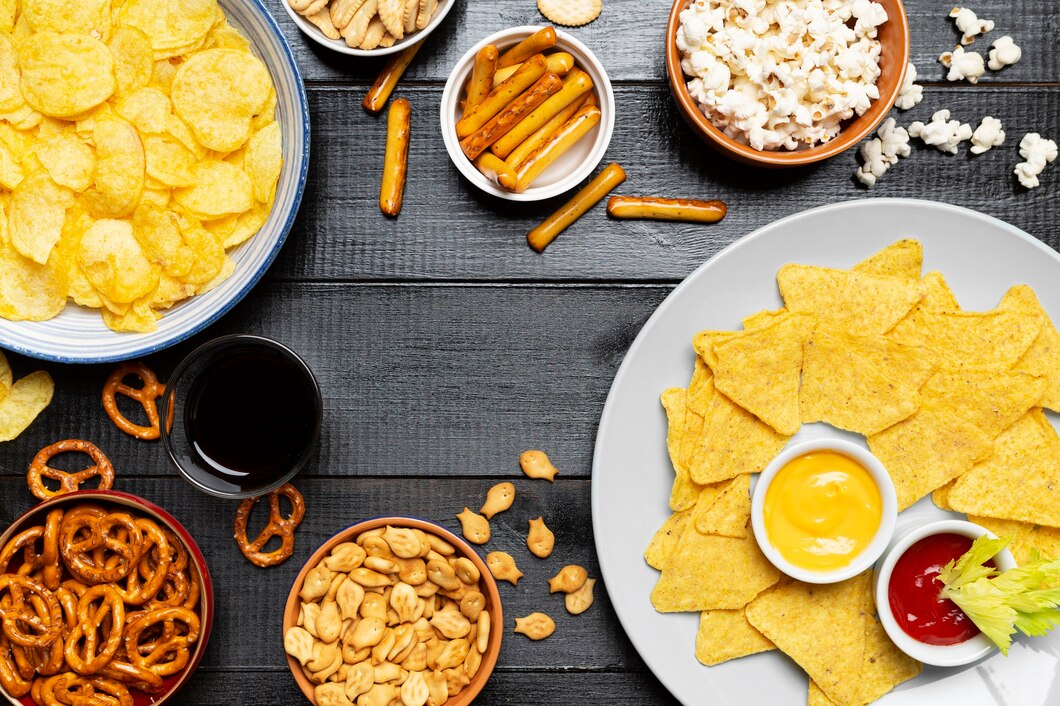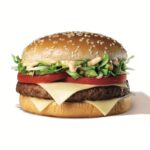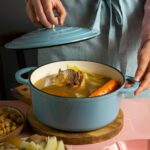Water retention, also known as fluid retention or edema, is a common condition where excess fluid builds up in the body’s tissues. This can cause swelling, bloating, and discomfort. Diet plays a significant role in managing water retention. By avoiding certain foods, South Africans can help reduce the risk and severity of this condition. Here are 20 foods to avoid to help reduce water retention.
1. Salty Snacks
Foods like chips, pretzels, and salted nuts are high in sodium, which can cause the body to retain water. Opt for unsalted or lightly salted versions to reduce sodium intake.
2. Processed Meats
Sausages, deli meats, and bacon often contain high levels of sodium and preservatives, contributing to water retention. Fresh, lean meats are a better alternative.
3. Canned Soups
Canned soups are convenient but typically high in sodium. Homemade soups with fresh ingredients allow you to control the salt content.
4. Frozen Meals
Many frozen meals are high in sodium to preserve flavor and extend shelf life. Cooking fresh meals at home can help you manage sodium levels better.
5. Fast Food
Fast food items are notoriously high in sodium and unhealthy fats. Reducing fast food intake can significantly decrease water retention.
6. Cheese
Certain cheeses, especially processed and hard cheeses, are high in sodium. Opt for low-sodium varieties or limit cheese consumption.
7. Pickles
Pickled foods are preserved in brine, which is high in sodium. Fresh vegetables or homemade pickles with reduced salt can be healthier options.
8. Soy Sauce
Soy sauce is extremely high in sodium. Choose low-sodium soy sauce or use alternative seasonings like herbs and spices.
9. Sauces and Condiments
Many sauces and condiments, such as ketchup, barbecue sauce, and salad dressings, contain hidden sodium. Look for low-sodium versions or make your own.
10. Canned Vegetables
Canned vegetables often contain added salt for preservation. Fresh or frozen vegetables without added salt are better choices.
11. Instant Noodles
Instant noodles are convenient but contain high levels of sodium and preservatives. Cooking whole grain pasta with fresh ingredients is a healthier option.
12. Bread and Bakery Products
Many breads and bakery products contain hidden sodium. Choose whole grain options and check labels for lower sodium content.
13. Processed Snacks
Snack foods like crackers, popcorn, and pretzels are often high in sodium and additives. Opt for homemade snacks like unsalted nuts or fresh fruit.
14. Breakfast Cereals
Some breakfast cereals are high in sodium and sugar. Choose low-sodium, whole grain cereals or make your own granola.
15. Bottled Salad Dressings
Bottled salad dressings can be high in sodium. Making your own dressings with olive oil, vinegar, and herbs is a healthier alternative.
16. Energy Drinks
Energy drinks often contain high levels of sodium and sugar. Hydrate with water, herbal teas, or natural fruit juices instead.
17. Soda and Soft Drinks
Soda and soft drinks can contribute to water retention due to their high sugar and sodium content. Opt for water or unsweetened beverages.
18. Alcohol
Alcohol can lead to dehydration and subsequent water retention. Limiting alcohol intake and staying hydrated with water can help reduce this effect.
19. Processed Cheese
Processed cheese spreads and slices are high in sodium. Choose natural cheese in moderation or low-sodium alternatives.
20. Commercially Prepared Sauces
Sauces like soy sauce, teriyaki sauce, and gravy mixes can contain high levels of sodium. Making sauces from scratch with fresh ingredients allows you to control the sodium content.
Managing water retention involves making mindful dietary choices, particularly regarding sodium intake. By avoiding these high-sodium foods, South Africans can help reduce fluid retention and promote overall health. Incorporating fresh, whole foods and cooking at home can make a significant difference in managing water retention effectively.








